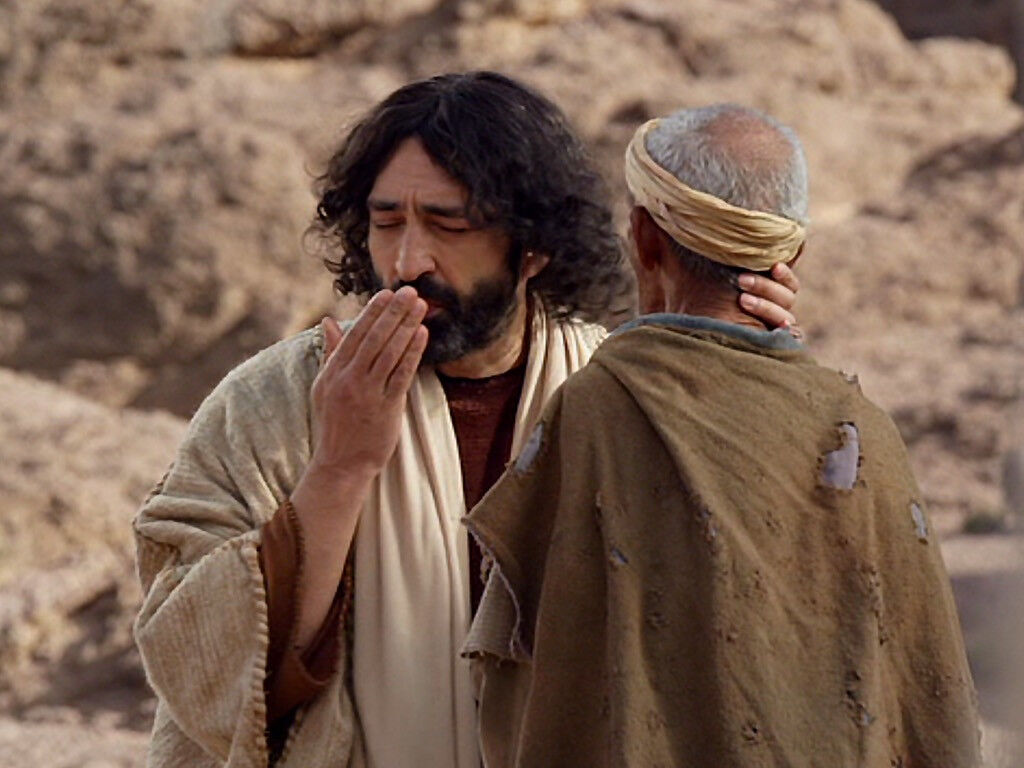
10 February 2023 – Mark 7:31-37
In today’s Gospel passage, Jesus is still in the territory of the Gentiles, eastwards from the Mediterranean coast towards the interior, in the area of the Decapolis (in Greek “Ten Cities”) and here he heals a deaf-mute. There are many occasions, presented by the Gospels, in which Jesus performs healings on which we are called to reflect because each one, with its peculiarities, enlightens us on the meaning of divine action.
In this miracle, closed ears are opened to hear the voice of God and a tied tongue is loosed to proclaim. the Word of salvation. This happens after Jesus took the man aside, put his fingers in his ears, touched his tongue with saliva, raised his eyes to heaven and prayed: ‘Open up’. Immediately the man’s ears were opened and his
his tongue was able to speak clearly. As is often the case in this Gospel, the people who experienced the miracle are told not to report it to anyone, “but the more Jesus insisted, the more they did”.
Hearing and speech are two faculties on which, both concretely and symbolically, the inter-human relationship and the relationship between God and man is based (in Jewish sensibility
the shema’ Israel, hear Israel, is the most heartfelt prayer). The history of salvation, from the creation and in all the events of the Old Testament, passes through listening to a voice that calls (Adam “Where are you?” in Gen 3:9; Cain “Where is Abel your brother?” in Gen 4:9; Abraham in Gen 12 and many others), and a voice that responds to this call. This is very evident and suggestive in the call of the prophet Samuel where the Lord calls him three times: “Samuel!” and Samuel three times answers: “Here I am” (1Sam 3). The Judeo-Christian religion is first of all the religion of the word and of listening, then comes the Holy Scripture.
The deaf-mute, who already for the society of the time is an outcast, prevented from any interaction, acquires in this perspective a further symbolic meaning: he is the one who is closed within himself, who is precluded from listening and responding to God. Every man brings with him a ‘deafness’, a refractoriness to the Word that saves. This is where the miracle of Jesus intervenes, to make such a relationship with God possible. The man whose ears are opened, who speaks correctly, is the one who then communicates his encounter to others and spreads the proclamation. Moreover, Jesus heals “far from the crowd”, far from the land of human bondage, far from the eyes of those who seek prodigies. He does not want such prodigies to be recounted. The signs he performs are, in fact, the messianic signs that made him famous and for which the people want to make him king, as happens in the sixth chapter of John’s Gospel. There he retires alone to pray, waiting to show his true Kingship as Messiah in the events of his passion and death in Jerusalem. Often in healings Jesus works by touching, by establishing physical contact with the one he heals, creating a true encounter that involves the whole man. Jesus prays and says “Open up”, Effatà”, to overcome the resistance of our hearts closed by distrust, unable to believe in the goodness of others and of God.
For good workers…
– An invitation to openness, to the desire for encounter and relationship.
– An anti-individualistic invitation, opposed to the modern idolatry of self-sufficiency, of self-referentiality.
of self-sufficiency, of self-referentiality, of massification which, by depriving man of ears and
mouth, isolates him.
– An invitation to listen to the Word of God and to seek his voice in the events of our lives.
our lives.
P JOBY KAVUNGAL RCJ

